
John Maxwell addresses why it’s important in leadership to intentionally think of ways to value people every day.

John Maxwell addresses why it’s important in leadership to intentionally think of ways to value people every day.
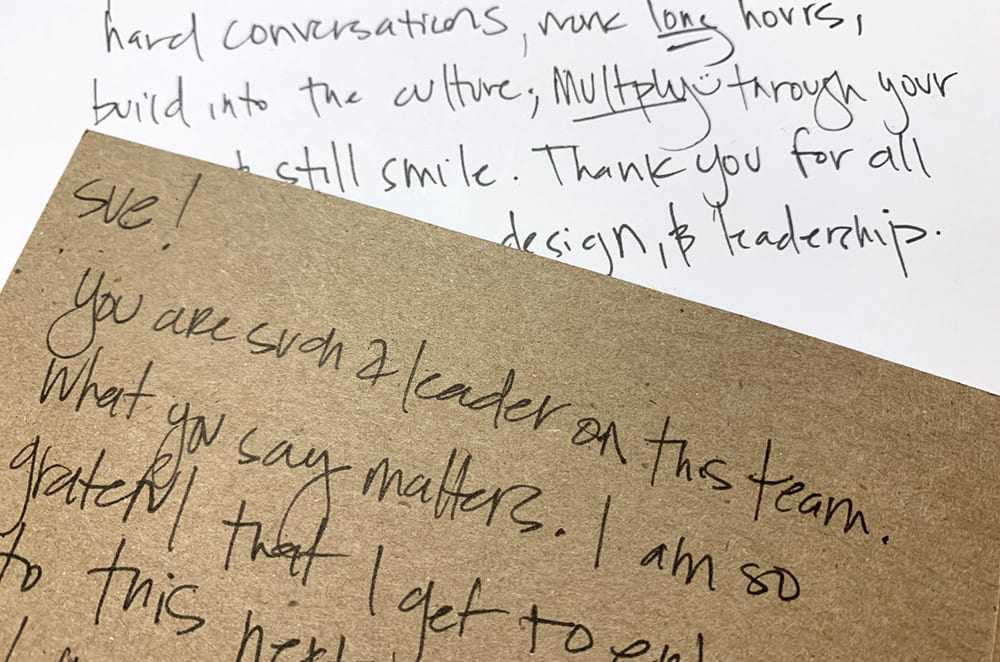
Early in my design career, I started to question myself and what I was doing. I went through all this schooling and I figured out what I wanted to do, but I felt like I wasn’t fulfilling my purpose in the agencies I was a part of. So, when I saw the design job open up at the Global Leadership Network, I was so excited. It connected with who I was. I got hired, and I finally felt like the work I was doing had purpose. I felt like if I could visually communicate a clear message and value, and it inspired someone to attend a conference, I could be part of their journey. And I knew once they came, God would use the Summit to speak to them.
…early on, I didn’t feel like I was a leader…
I feel like I am one of the fortunate ones who has been able to merge my passion for design with purpose and meaning in my work. I get to be a part of a vision that believes leadership can change the world. And in a small way, I can be a part of helping people discover their leadership, discover how they can make a difference in their communities and families.
But early on, I didn’t feel like I was a leader even though I was working here. I loved the cause, but I felt more like a helper. I was able to relate to the part of our audience at the time that didn’t feel like they were a leader, and wondering why they were at The Global Leadership Summit in the first place.
I had been working here for about 10 years when the GLN went from doing nine conferences to doing one conference—The Global Leadership Summit. During that season, my supervisor would say to me, Sue, you are a leader. I would laugh at her and blow it off. She was trying to inspire me and encourage me, but I didn’t believe her. I fought her for a long time. She would say it to me and write it to me all the time.
Maybe she’s actually saying something that I need to stop laughing at.
I respected her and saw her leadership was exactly what we were speaking about at the Summit. She was the embodiment of a leader to me. To think that she actually believed I could be a leader too really meant something. So, I had to trust her. I trusted her in every other area, so I had to trust that she wouldn’t say this if she didn’t really feel that way. I began to think, Maybe there is some truth to this. Maybe she’s actually saying something that I need to stop laughing at.
I started to hear it. I started to look around me and see the different areas where I could have influence. I started to believe it. Once I started to believe it, I felt confident. She built into me so strongly over that three-year period, it was the most I’ve ever grown in my leadership. I realized, I’m one of those people who didn’t know they had influence, but I see it now!
Up until the transition of going from nine conferences to one, we had been outsourcing the Summit conference design to an outside firm. They created the art, and we worked with the concepts when they came back. But in 2012, my supervisor decided to stop outsourcing it. We were in a new era now.
I became more emotionally connected to the concept “everyone has influence”…
My supervisor believed I could lead the strategy, concept and design for the Summit and elevated me to Art Director. And that year, for the first time, the Summit design process happened in-house under my leadership. All this was happening just as I was discovering, through her belief in me, that I am a leader.
I became more emotionally connected to the concept “everyone has influence” because I was going through a process of discovering that about myself. As an organization, we started talking to everyday moms, teachers, coaches, etc., and I was also in that demographic. I started to become more absorbed in learning about branding and who our audience was. It was an exciting time of change in the history of our organization because we were focusing on leadership and influence in every sector, and I got to be a part of that brand message from the beginning.
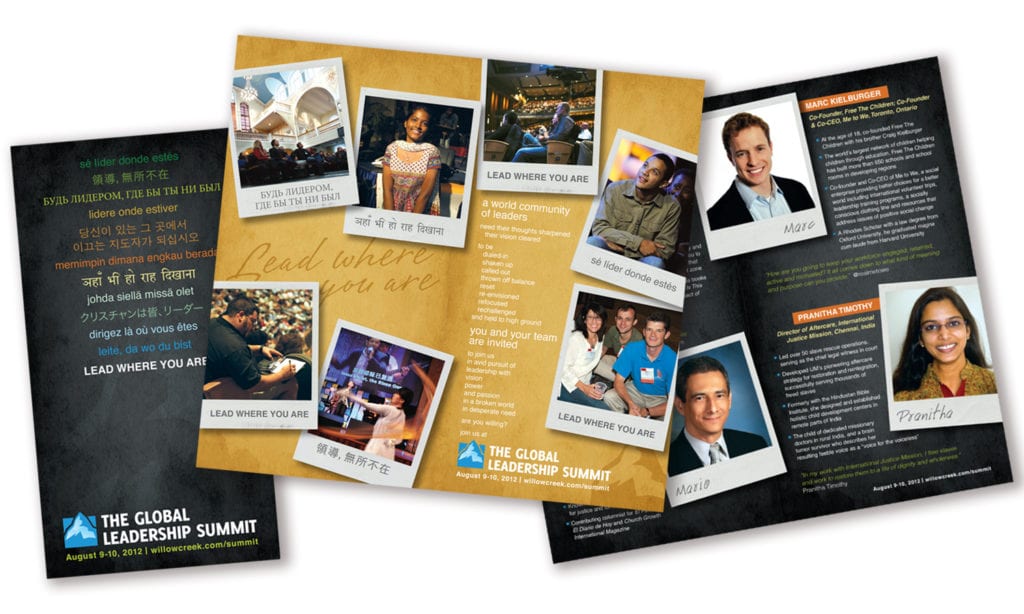
Even after 19 years of working at the GLN, I still get excited about the creative process. Every year is a new, fun, exciting challenge to figure out how to come up with interesting, inspiring visuals and graphics that will inspire people to come to the Summit. I love branding. I love helping to convey and uphold our brand values of global, accessible, high-quality and world-class through design—to communicate that everyone has influence and everyone is a leader.
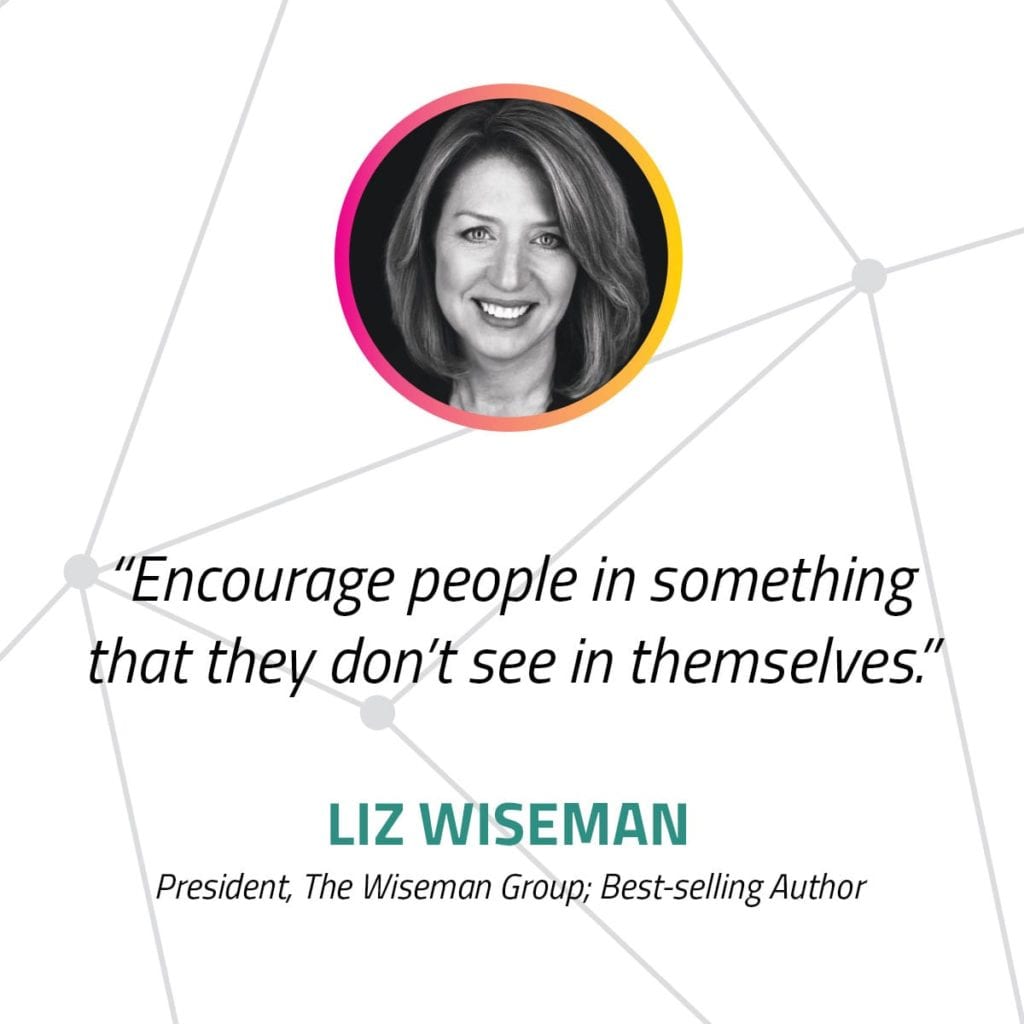 One of the Summit talks that had the most impact on me was by Liz Wiseman. She talked about leaders who are multipliers, and that clicked for me. I realized my supervisor was a living model of multiplier. It was so powerful to me. After she moved on, I wanted to make sure I could be a multiplying leader to the people I’m responsible for leading.
One of the Summit talks that had the most impact on me was by Liz Wiseman. She talked about leaders who are multipliers, and that clicked for me. I realized my supervisor was a living model of multiplier. It was so powerful to me. After she moved on, I wanted to make sure I could be a multiplying leader to the people I’m responsible for leading.
After I read Liz’s book, Multipliers: The Best Leaders Make Everyone Smarter, I apologized to my supervisor. I thanked her for sticking with it, believing in me and calling out my leadership. I’m so glad she didn’t give up on me.
Throughout my life, I’ve had a hard time with confidence. Growing up, I was shy and introverted. After I graduated with my degree in graphic design, my dad said, Oh, are you going to color me a picture? What was intended as a joke had a lasting, negative effect on me, and still does to this day. I constantly battle feelings of inadequacy.
I realized my supervisor was a living model of multiplier.
Since then, the hardest part of discovering and using my influence has been my struggle and battle with confidence. It’s not that I can’t see the impact of my influence now, but it’s overcoming those negative voices from my past. It’s Satan getting me off the track of what God is calling me to do.
Every year at the Summit, God talks to me specifically, and I am inspired and reinvigorated. My passion is reignited to continue doing what I do. It gives me the confidence boost I need and I no longer feel alone. And the tools I gain to lead my team as a multiplier are so valuable.
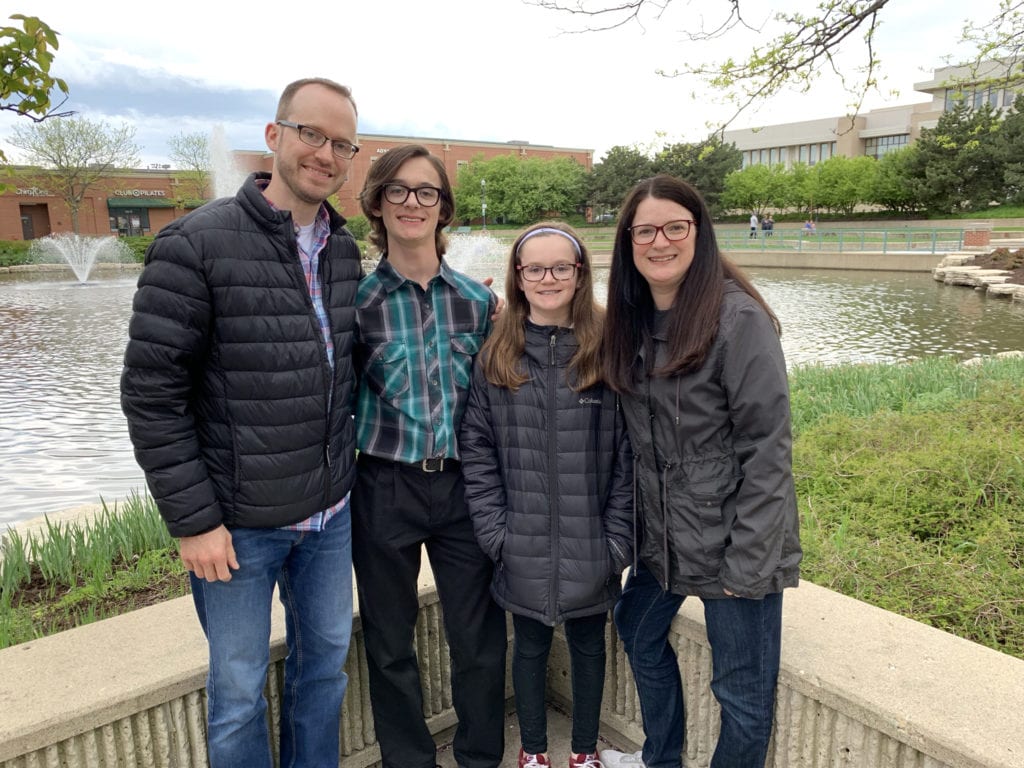 My job is not the only place where I can have influence. I realize I still have leadership influence with my family and my kids. When I leave work for the day, I still have a team of people back home. These are people that God entrusted to me first.
My job is not the only place where I can have influence. I realize I still have leadership influence with my family and my kids. When I leave work for the day, I still have a team of people back home. These are people that God entrusted to me first.
Pranitha Timothy’s Summit talk also had a big impact on me. She said, My family is safer in God’s hands than they are in mine. That stopped me in my tracks. I realized I had never thought of my kids this way before. It was in that moment when I realized I also have a responsibility as a leader to my kids. So, I want to make sure I’m continuing to grow in my faith and leadership for them, to multiply them as leaders too. I want to do my best to lead and guide them, knowing that one day they are going to leave home and lead their own lives of influence.
This is the power of belief—the belief of my supervisor in me. My belief in my kids. Calling out the leadership of others within your sphere of influence has a multiplying effect that can change lives. The ripple effect in leadership is powerful.
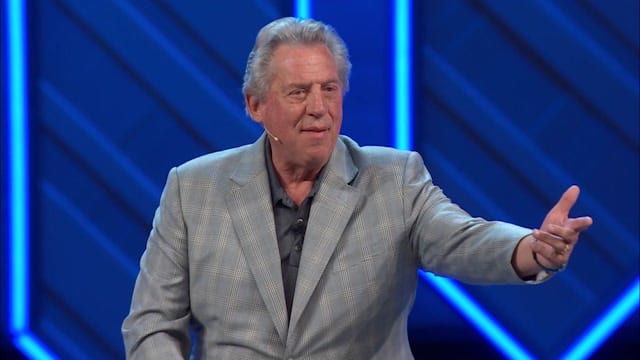
John Maxwell shares how leaders can be intentional in adding value to people every day.


Bear Grylls shares how he stays balanced in the midst of such a busy, successful career and discusses how his team worked together to create his latest project, You vs. Wild.

Danielle Strickland talks about what inspires her and what truths she wishes she would’ve grasped at a younger age.
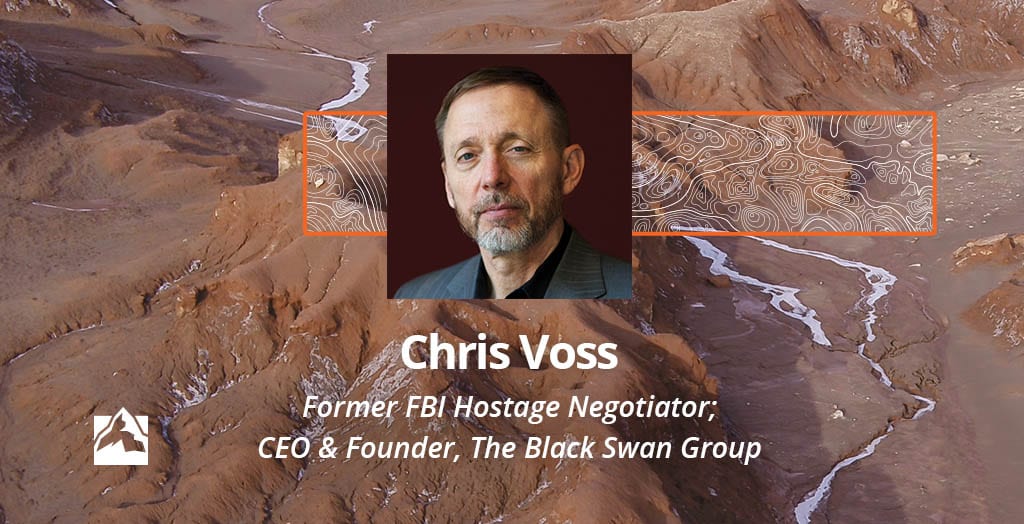
Chris tells us if those hostage negotiation scenes from the movies are really real, and opens up about what leadership lessons he learned from his time with the FBI.
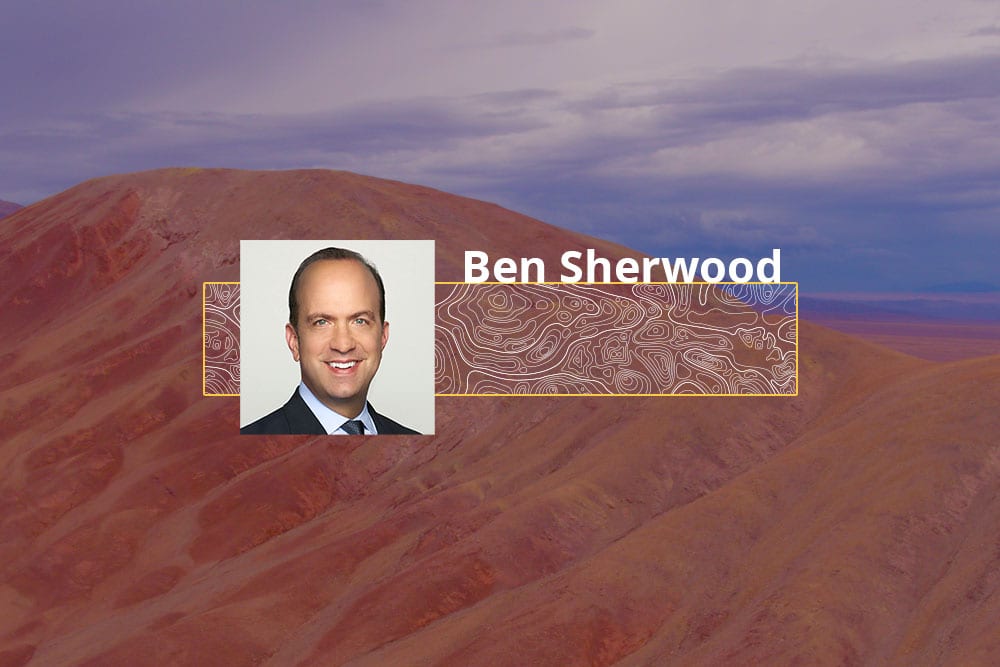
We are excited to announce Co-Chairman of Disney Media Networks and President of Disney | ABC Television Group, Ben Sherwood has joined the GLS faculty! This MediaVillage article will help you get to know this fascinating leader.
Some media executives are daunted by perpetual disruption and are unsure of how to proceed. Disney Media Networks Co-Chairman and Disney/ABC Television Group President Ben Sherwood says look to nature for the answers.
“The fundamental rule of success has been adaptation,” he recently told Ed Martin, editor of MediaVillage, over lunch at Michael’s restaurant in New York City. “Adaptation means changing your attitude and your actions in response to challenges and threats. People who see the threat and then adjust their behaviors and act—adapt and evolve—are the ones who manage to survive and thrive.”
At Disney/ABC, Ben added, “Every day we’re trying to lead a process of adaptation, anticipating the disruptions around us and taking decisive action to not only adapt but also capitalize. There’s going to be a lot of opportunity with these disruptions.”
Surprising changes and unexpected new challenges are cornerstones of Ben’s career, which might be defined as a series of self-started disruptions that have found him transitioning from journalist to author to entrepreneur to media executive. “I’ve tried a lot of different things,” he said. “My curiosity has led me to journalism, publishing, entrepreneurship and entertainment. There is a Kenneth Rexroth translation of a Japanese poem that I’ve always liked: I’ve always known that I would take this path, but yesterday I did not know that it would be today.”
Born and raised in Los Angeles, Ben became interested in traveling the world and telling stories while driving with his father around the city and listening to the radio. “We were Dodger fans, so we listened to Dodger games,” he recalled. “I grew up with the Dodger infield of Steve Garvey, Davey Lopes, Bill Russell and Ron Cey, but I also grew up listening to CBS News and all of the legendary correspondents around the world. My dad and I not only knew the Dodgers, we also knew all the CBS News correspondents. There was one, Bruno Wassertheil in Tel Aviv. His name was so distinctive, and we would imagine what it would be like to be Bruno Wassertheil reporting from Israel.”
Television news was also an influence. “I have to acknowledge the power of Walter Cronkite, when I was a kid, and the lunar landing, and the violence in the late 1960s, which is really my first set of memories of television news, and then the Vietnam War and all of those war correspondents, and 60 Minutes, the Mike Wallace interviews,” Ben said. “Those experiences ignited the desire to travel around the world and have adventures and tell stories.”
News aside, television viewing wasn’t always easy for Ben during his childhood, an ironic circumstance given where he is today. “In our home I’m sad to say television was severely rationed,” he told us. “I was allowed to watch one hour of television per week. So it was Sunday nights at my grandmother’s house. We got a piece of chocolate and we got to watch one hour of television on this thing that looked like a piece of furniture, with a big wooden case and a television inside it. We watched The Wonderful World of Disney.”
“My revenge on my parents for the rationing of television was a career in television!” he added with a laugh.
From novels to news reports to network series, Ben said the common denominator that has informed his career has been great storytelling. It began in earnest when he was an undergrad at Harvard, where he studied alongside another future media luminary. The two would both move on to television news and then to overseeing entire broadcast networks. “My old friend and college contemporary Jeff Zucker [who went from executive producer of NBC’s Today show to President and CEO of NBCUniversal and is now President of CNN Worldwide] and I worked on the student newspaper together at Harvard,” he said. “Jeff has been a friend and a competitor for the past 35 years.”
Ben hadn’t planned on writing novels, but a chance encounter with a copy of one of Michael Crichton’s better-known bestsellers changed that. “I happened to be on an airplane in the early 1990s when I found a copy of The Andromeda Strain in the seatback in front of me,” he recalled. “It’s about 90 pages. By the time I got to Chicago I had finished it. I loved it. I read in the book jacket that Crichton had written it while he was a medical school student. As a kind of hobby, I set about writing a techno-thriller. I didn’t know anything about writing fiction, but I thought it sounded like it would be kind of fun—a very long crossword puzzle. A couple of years later, it was published; a techno-thriller called Red Mercury under the pseudonym Max Barclay. My literary agent said it was so bad I would never want to have my name associated with it and she was right. If I’m lucky enough to live long enough to teach writing to anyone who might be interested I will hand the book out as a lesson of what not to do in your first novel. It is a compendium of every possible mistake.
“But I caught the bug,” he continued. “I had so much fun in the world of make-believe. I was able to continue in my fiction to do a lot of research. I spent nights, weekends, vacations in this tiny town in the middle of America, Superior Nebraska, researching [his next novel] The Man Who Ate the 747. To write The Death and Life Charlie Saint Cloud I spent a great deal of time up the coast of Massachusetts in Marblehead to learn about sailing and about the world that book is set in.” It’s all about “research, curiosity, meeting great characters,” he said.
The inspiration for Charlie St. Cloud (which was made into a 2010 movie starring Zac Efron) was deeply personal. “There were two things—the loss of my father 25 years ago, and the emotional fog that filled my life during that time, and then the unlocking of that by meeting [my wife] Karen and falling in love with her,” Ben said. “Charlie St. Cloud is really a story about loss, the grip of loss and the stranglehold that loss has on many people’s lives. I was lucky to find the liberating power of love. (Those experiences also led to Ben’s fourth book, The Survivors Club, a New York Times’ best-seller about the science of and secrets to surviving extraordinary adversity.)
“Karen is the smart, successful one in our family,” he continued. “She has spent 27 years in the film industry. She started as an intern and administrative assistant at Imagine Entertainment for Ron Howard and Brain Grazer and worked her way up to being Co-Chairman of the film division. We were courting and fell in love when she was working as a development executive on the screenplay for A Beautiful Mind with Akiva Goldsman. She helped develop the screenplay and served as executive producer on the film.
“We ended up going on a date to the Golden Globes, where it won many awards, and on another to the Academy Awards, where it swept the awards,” he continued. “It was such a magical night being her date as this movie she had worked on won Best Picture and three other top awards. We made an agreement that we would never go back to the Academy Awards unless Karen was nominated for some future work. When I got this new job at Disney/ABC [I knew that] one of the obligations and privileges of the role is to represent ABC as the broadcaster at the Academy Awards. So I called Karen when I was offered the job and I found out about this particular requirement and I said, ‘Honey, we need to renegotiate that deal.’ She said, ‘Under the circumstances I think I can go along with that.’
The Sherwoods have two sons, ages 6 and 12. Ben lovingly refers to the family’s home environment as a “living laboratory” for media studies. “In the three years I’ve been in this role, they’ve gone from being 3 and 9 to 6 and 12, so I have witnessed first-hand the present and future of media consumption,” he reported. “I wish I could say that it’s good news. I can say that in just the space of these three years I’ve seen our boys move from watching television mounted on a wall, with shows that we tell them when to watch—linear television—to their own self-directed viewing whenever they want, of shows that are either ours, Disney Channel shows or now more often Internet-based television, whether its YouTube, Netflix or another. Certainly with this little living laboratory at home, I wake up every morning to the reality that we face and the challenges, and also the opportunity that we have.”
The family is not totally high-tech. For example, when I commented on a blue-string bracelet Ben was wearing, he said it was “the last strands of a friendship bracelet from summer vacation last summer where all members of our family got these. I’m trying to make it until August so it will be an entire year, but it’s fading fast. It has never come off since last August. It’s getting pretty ratty. I trim it and groom it, but it’s down to the last strands.”
Our lunch was on the opening day of Upfront week, just over 24 hours before Ben, Disney/ABC Ad Sales President Rita Ferro and ABC Entertainment President Channing Dungey would present details of ABC’s fall schedule and Disney/ABC’s sales plans for the year ahead. The talk of the week already was American Idol, ABC’s relaunch of which had been reported only a few days earlier. “When we learned that there was a chance at bringing Idol back we jumped,” he said. “Channing Dungey and [Senior Vice President of Alternative Programming] Rob Mills made a really compelling argument to the producers of American Idol that Disney/ABC is the right home for the next generation of the show. We have the ability to bring in both the power of our network and our 239 affiliates plus, given the subject matter, we have the ability to bring in our Freeform network for 14-34 year-olds and in some cases, our Disney Channels worldwide. And while it’s not our part of the business, there are opportunities to reach out to our parks and resorts. We see all kinds of opportunities across the company getting behind a big live music show.”
As lunch concluded, we asked Ben if he was going to write any more novels. Ben said not to expect any in the foreseeable future. “Creatively, it’s one of the hardest things there is to do, at least that I know of,” he noted. “I’m fully engaged in what I’m doing right now, and loving what I’m doing, and I don’t even have another idea for a book. That’s a good sign, because whenever an idea pops into my head, that means there is some little empty space for it. Right now my full creativity, curiosity and focus are on our business challenges and opportunities.”
This article originally appeared on mediavillage.com.
Join 405,000+ of your peers for two days of fresh, actionable and inspiring leadership training from a world-class faculty at a location near you.
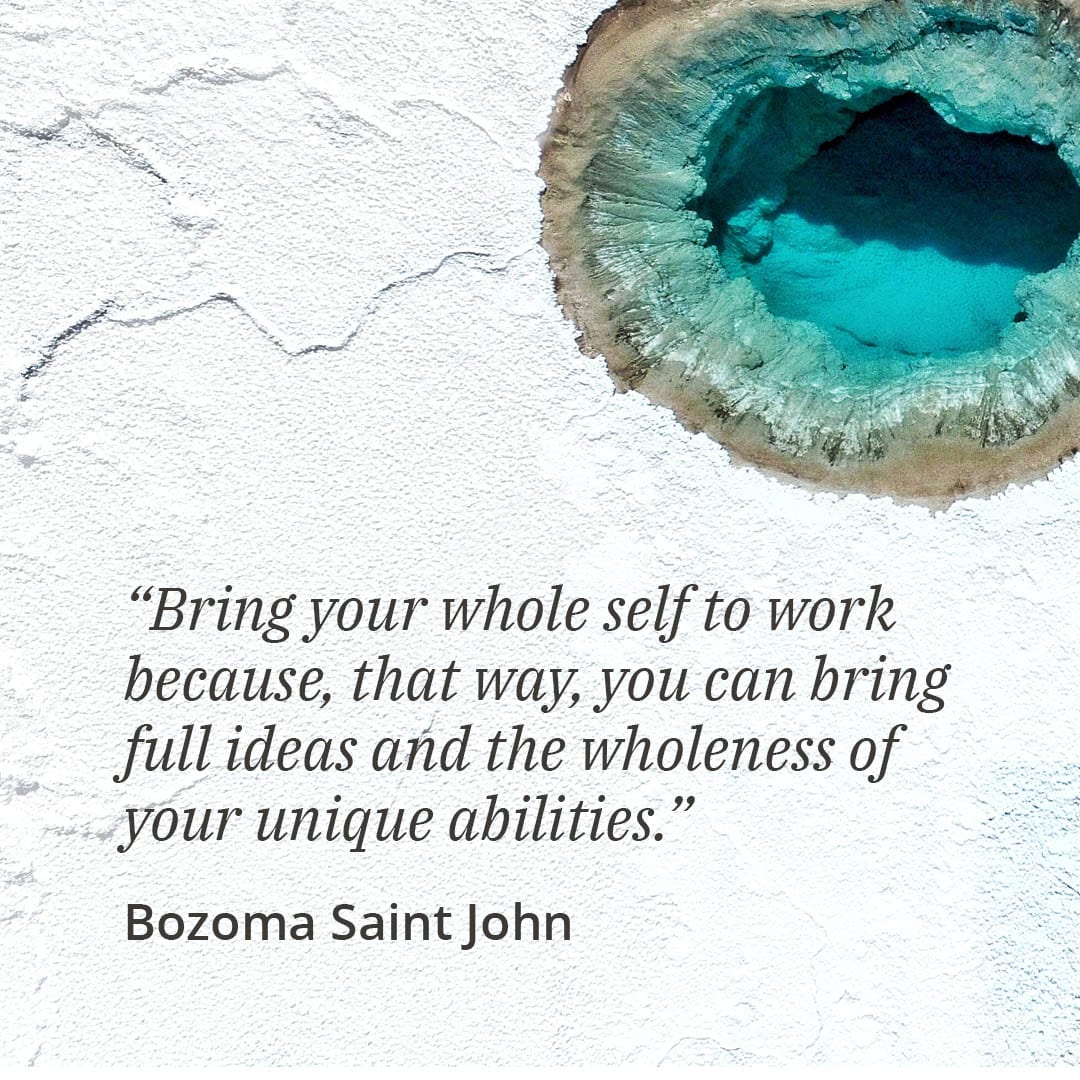
Bring your whole self to work because, that way, you can bring full ideas and the wholeness of your unique abilities.




“We welcome and encourage comments on this site. There may be some instances where comments will need to be edited or removed, such as:
If you have any questions on the commenting policy, please let us know at heretoserve@globalleadership.org”
Recent Comments